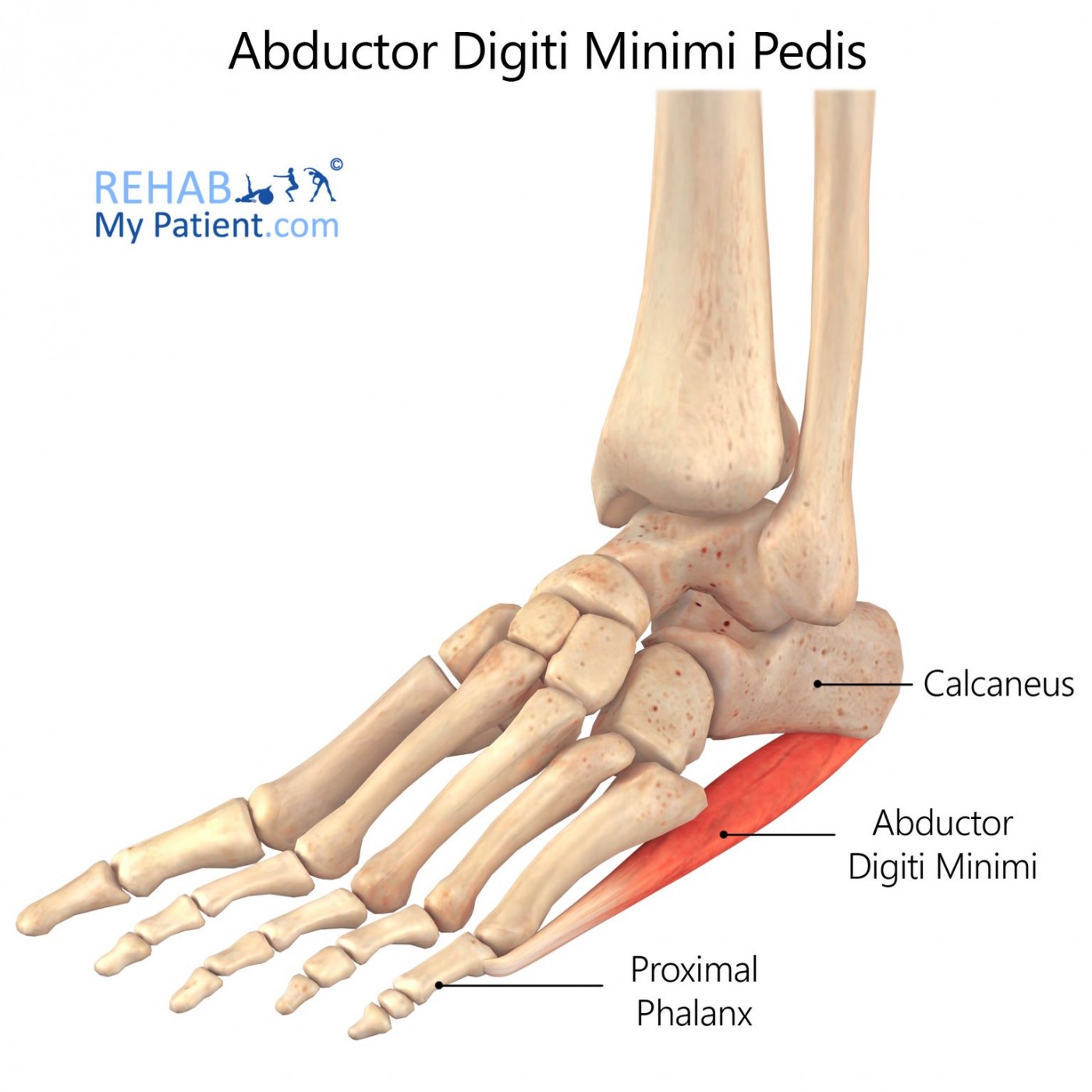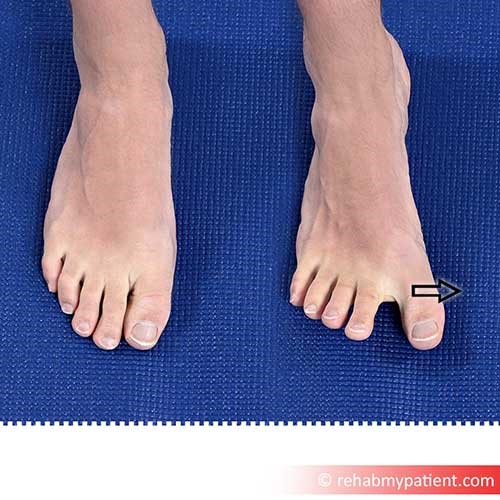Abductor Digiti Minimi Pedis (foot)
Posted on 21st Jul 2020 / Published in: Toe

General information
There are two abductor digiti minimi muscles, one in the hand and one in the foot. The foot has 20 muscles in total.
Literal meaning
The muscle that abducts (away from the midline) the little toe.
Interesting information
The muscle is interwoven with the flexor digiti quinti brevis so not only does the muscle abduct the little toe, but it also helps with flexion (curling) of the little toe.
To feel the muscle, place your fingers under the outside of your foot (hook your fingers under the sole, along the outside lateral border of your foot). Spread your toes and try to feel the contraction on your sole.
It is possible to experience pain on the abductor digiti minimi, but rare. Pain often comes from walking on hard ground in hard shoes, especially for fast walkers, or those with poor gait biomechanics. Pain over this area should always be ruled out against a fractured fifth metatarsal. The fractured fifth metatarsal is usually caused by spraining the ankle, when you go over on the foot, and often requires surgical pinning.
Origin
Calcaneus and plantar aponeurosis.
Insertion
Proximal phalanx of the fifth toe.
Function
Abducts the fifth toe. The muscle also helps to stabilise the foot when walking on rough or uneven ground.
Nerve supply
The lateral plantar nerve, which is a branch of the tibial nerve.
Blood supply
Plantar artery.

Relevant research
It was found that the muscle contains fast twitch motor units that are fatigue sensitive and fatigue resistant.
Burke D, Skuse NF, Lethlean AK. Isometric contraction of the abductor digiti minimi muscle in man. J Neurol Neurosurg Psychiatry. 1974;37(7):825-834. doi:10.1136/jnnp.37.7.825
Abductor digiti minimi pedis exercise
Toe abduction
Try to spread your toes outwards. It is a fairly difficult exercise and the outer toes may not move out much at all. But the muscle contraction will still occur even if the toes do not move. Practice ten repetitions, three times per day.

Sign UP
Sign up for your free trial now!
Get started with Rehab My Patient today and revolutionize your exercise prescription process for effective rehabilitation.
Start Your 14-Day Free Trial